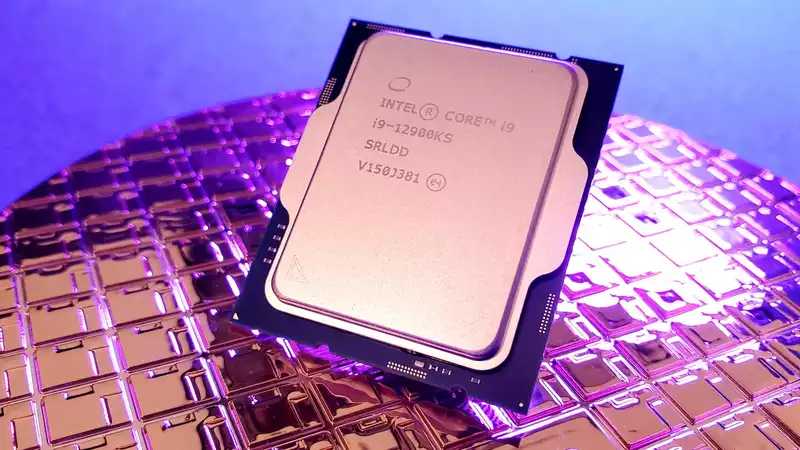This is not an easy processor to review. The Intel Core i9 12900KS is arguably the fastest gaming CPU in the world, but at first glance, it looks like Intel is only there to claim its name in the Alder Lake family. And honestly, this is a processor that only marketers will love.
AMD recently announced the Ryzen 7 5800X3D. This CPU is impressively designed, using the latest chip stacking technology to boost L3 cache and improve performance, especially for gaming. And I thought it was a decent chip, given its smart technology, dramatically improved performance over the standard Ryzen 7 5800X, and its future prospects.
However, there is still the undeniable fact that at the kind of resolution that people who spend $400+ on a processor will be gaming at, the CPU will likely have little to do with the actual gaming performance of the rig. Unless you have an odd build that puts too much money on the CPU over the graphics card, the GPU will play an important role in high-resolution PC gaming. And given that games are GPU-bound, the difference between processors can only be measured in single-digit frame rate differences.
Still, at least for AMD's fastest gaming CPUs, one can argue the superiority of the new silicon design and the consistency of the AM4 platform. Intel's Core i9 12900KS, on the other hand, does not.
The KS is identical to our beloved 16-core, 24-thread Core i9 12900K, but it is ostensibly about $200 more expensive because of the 300 MHz added to the boost clock. Yes, this is a bin-sorted version of the Alder Lake top chip, with a top turbo speed of 5.5GHz right out of the box. No overclocking is required.
But a large power supply unit and serious cooling is definitely needed.
What's more necessary is a willingness to suspend disbelief about the critical nature of the super high-end CPU silicon in a dedicated gaming rig. But let's turn our attention to the actual hardware for a moment.
We covered the superior design of the Alder Lake processors in our reviews of the Core i9 12900K and Core i5 12600K, but the basics are that Intel offers an incredible single-threaded microarchitecture in the Golden Cove design, Combine that with a large number of small cores (which are still surprisingly powerful) and you have outstanding multi-threaded performance. The concept of big.LITTLE CPU design, previously demonized on the desktop, turns out to actually deliver serious gaming performance.
All the way up to its cheap hero, the Core i5 12400, Alder Lake has delivered. But the Core i9 12900KS is not for me. And I don't think it's going to be useful to anyone except those "must have" people who will pay a lot of money for the absolute fastest silicon, whether there's a tangible difference or not. Or perhaps even for Intel marketers who need to claim the title of "fastest gaming CPU."
1080p gaming performance
System performance
As I said before, there is no doubt that this CPU is the fastest gaming CPU, just as a test rig with an RTX 3080 is CPU-bound enough to highlight potential performance differences, It should be tested at 1080p. But at this level, aside from a few outliers, it certainly delivers higher frame rates than a Core i9 12900K or Ryzen 7 5800X3D.
But the huge price difference between the three is rarely enough to make the payment seem worth it: paying $600 for a 12900K won't make you lose sleep over the loss of not buying a Core i9 12900KS at 1440p or 4K. Core i5 The exact same is true if you pay $250 for a 12600K. Maybe even a Core i5 12400 for $175.
But one of the biggest problems is the amount of power needed to achieve these speeds: even if we are only talking about games where the CPU is not running at 100% load, the 12900KS requires 47% more power than the Ryzen 7 5800X3D. Average frames per second is improved by 23%, but only at 1080p.
The chip draws power to the limit of 241W at full load with standard power limits out of the box.
I am going to say that some of the goodwill Intel has built up by bringing the Alder Lake generation to the world has been lost, at least for me. This binned, annoyingly expensive chip is purely about being the fastest, and is more about tongue-wagging with AMD than it is about benefiting PC gamers.
Sure it's the fastest gaming CPU, but that's like saying the wheels of an F1 car can spin faster than any other wheel. That may be true, but in the end it doesn't matter when it comes to actually pushing a hunk of metal and carbon fiber on the track. Beyond a certain point, the engine, in this case the graphics card in a gaming PC, is the part that makes the real difference, and everything else is just semantics.
.

Comments